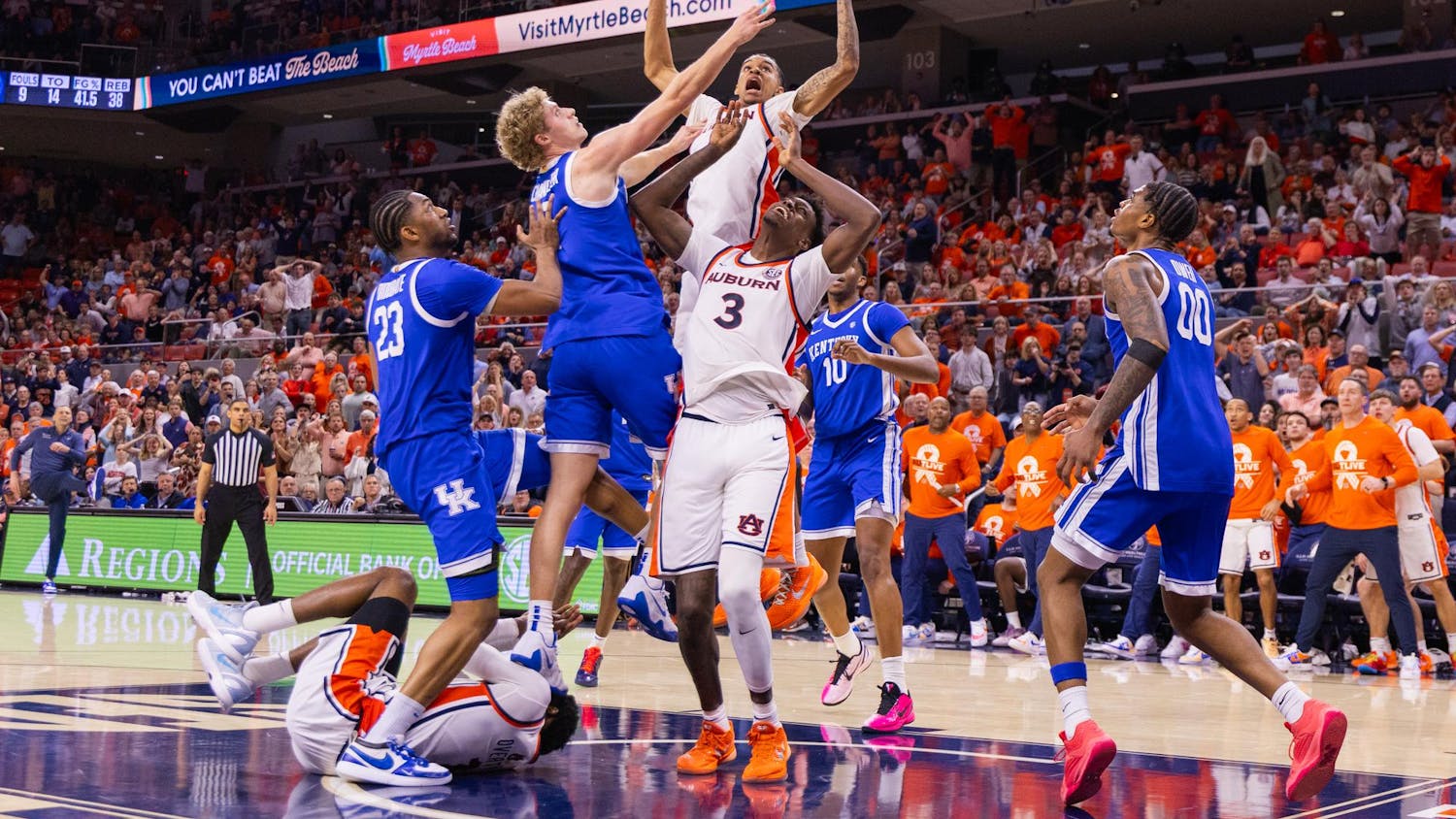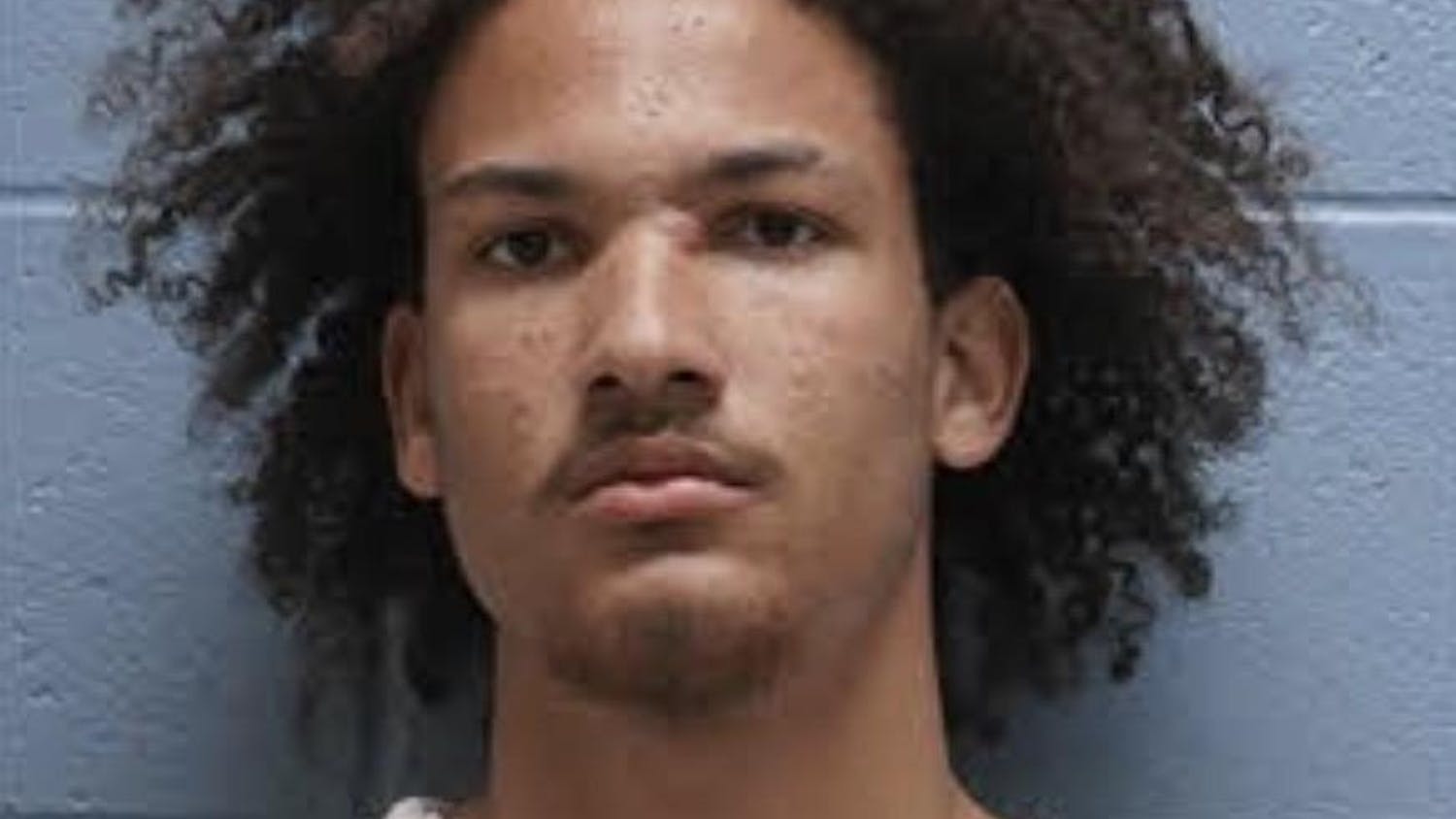On Oct. 22, the Auburn College Republicans and College Democrats faced off in a debate in Ralph Draughon Brown Library. Ahead of the 2024 presidential election, the partisan clubs represented their respective parties, discussing pressing national topics and elaborating on why their ideologies offer the best solutions.
The two moderators for the debate were Jonathan Parten, a junior majoring in agricultural business and economics, and Joshua Deutschendorf, a senior on the pre-medical track.
Representing the College Democrats were Ian Gun, a sophomore studying law and justice, and Thomas Williams, a sophomore studying political science.
President Luke Troutman, a junior majoring in geospatial and environmental informatics, and Madeline Baer, a political science sophomore, represented the College Republicans.
Both parties agreed on their mutual desire for growth and prosperity for America but highlighted their different approaches to achieving these objectives.
“Both [parties] on this stage would like similar things for America. We would like to see the GDP grow. We would like to see Americans be able to afford food and housing,” said Williams, representing the College Democrats. “But the critical difference is differences in how we intend to get there.”
In their opening statement, the College Democrats said they would discuss the economy, the budget and immigration.
Williams also criticized how the Republican Party plans to incorporate large tax codes and institute large tariffs on foreign nations, negatively affecting the lower class and instituting a global trade war respectively. Concluding the opening statement, Williams called a vote for presidential candidate Kamala Harris “critical” for the economy, immigration and human rights.
In their opening statement, the College Republicans echoed the Democrats’ sentiment of shared goals, but with different methods.
“[The parties] want similar things for this country, but we have different means of getting it,” said Troutman, representing the College Republicans. “We believe that our party has the more effective and more proven methods of achieving these goals.”
The Republicans said they would discuss immigration, the energy crisis, housing issues, healthcare and education.
The moderators Parten and Deutschendorf presented five prepared questions to both parties, allowing for timed responses and rebuttals.
The first question asked how each party believes the next administration should address natural disaster relief, citing recent hurricanes Helene and Milton, and whether they believe the current administration has done enough.
The Democrats said the United States must approach the core issue of global warming rather than focusing on government funding.
“[Global climate change and warming] is causing multiple shifts in what we understand to be the natural climate of this world,” said Williams. “And that is causing deeper issues like multiple climate crises a year, in which our government cannot necessarily stand up against.”
Gun also mentioned that the current Biden administration is doing all it can to provide natural disaster relief within budget.
The Republicans said that the Federal Emergency Management Agency, a US agency designed to help citizens affected by natural disasters, has already spent over half of its 2024 budget of 47.6 billion dollars.
Florida native Baer mentioned that FEMA was supposed to send 750-dollar checks to those affected, but did not successfully. Even so, Baer said these checks are not enough to help her “completely underwater” hometown this fall.
The next prepared question was about how policymakers will protect the middle class from inflation.
The Republicans began by citing economic principles and personal experiences. Baer said that statistics show affluent individuals will spend less money when they have less money, and this lack of spending will lead to less money in service industries, negatively affecting the lower class.
Troutman argued that most Auburn students have already experienced inflation through increasing prices at Tiger Dining and on- and off-campus housing.
The Democrats argued that the economy is doing “okay” and Harris will improve it. The economy's target inflation rate is 2%, and the current economy is at a 2.4% inflation rate, which has not been 3% for over a year. Harris also plans to provide three million new homes for middle-class Americans and a fifty-thousand-dollar tax deduction for small businesses.
Troutman mentioned that giving fifty-thousand-dollar tax deductions to small businesses is improbable.
The fourth question asked about the government’s role in Middle Eastern conflicts.
The Republicans agreed Israel is a US ally and the US must continue to give them resources. They mentioned Oct. 7, the attack that killed 1,200 Jews. Baer claimed this attack was the deadliest act against Jews since the Holocaust.
Baer also said that Biden’s withdrawal from Afghanistan was “probably one of the greatest military failures in all American military history.”
The Democrats argued that while Israel is a US ally surrounded by threats, the US must be cautious in their dealings. Williams argued that the assistance to Ukraine is sending old military equipment rather than money. In Israel, Williams said the Republican policy is “writing Israel a blank check.”
The fifth and final question was about each party’s opinion on whether there is a realistic path for national compromise on abortion or if abortion will be ambiguous.
The Democrats argued that the US needs to have a national idea of what abortion should be and that abortion should be protected under the First Amendment. Williams explained that the First Amendment upholds that the government is not allowed to use religion in their decision-making, and Gun said justices have frequently cited the Bible as a reason to overturn Roe v. Wade.
The Republicans argued that the overturning of Roe v. Wade did not create a federal abortion ban and the government must support women, not kill more babies. As the only woman on the stage, Baer argued the baby is a separate human being and less than 1% of abortions are due to rape or incest. 87% of women who have abortions are single, poor and do not have a college degree, so Baer argued the government must uplift these women.
After completing their final question, the moderators opened the floor to audience members for a question and answer. Three students approached the parties to ask questions about the energy crisis, current limitations on a woman’s body regarding pregnancy and the presidential administration's potential extreme budget deficits.
In the College Republicans’ closing statement, Troutman differentiated a vote for Trump and a vote for Harris through an analogy of a sinking boat with holes.
“A vote for Donald Trump is a plug in the hole, so that way, we can start scooping [water] up,” said Troutman. “A vote for Kamala Harris is shooting another hole in the boat, hoping that solves your issue.”
In the College Democrats’ closing statement, Gun connected Harris to the audience members. He argued Harris is from a middle-class background and attended a historically African American university, making her more like the average college student than Donald Trump.
Do you like this story? The Plainsman doesn't accept money from tuition or student fees, and we don't charge a subscription fee. But you can donate to support The Plainsman.
Ally Northridge, senior in political science, has been with The Auburn Plainsman since Fall 2024. Northridge previously served as a news writer and news reporter, and she is currently serving as the managing content editor.





